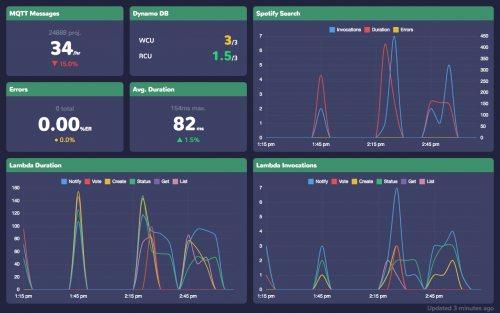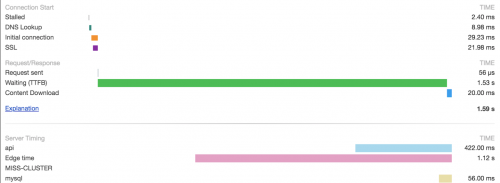SitePoint runs an extensive guide to the WordPress performance optimization. Not only it goes over the usual points like hosting selection and avoiding unnecessary plugins, but it also provides some insight into the WordPress database management and optimization, web server tweaks, and links to a few handy tools to help with performance of your site.
Tag: web hosting
Reboot and wait for reboot to complete in Ansible playbook
Jeff Geerling shares a handy tip on how to implement the configure-reboot-configure pattern in an Ansible playbook.
---
- name: Do something that requires a reboot when it results in a change.
...
register: task_result
- name: Reboot immediately if there was a change.
shell: "sleep 5 && reboot"
async: 1
poll: 0
when: task_result is changed
- name: Wait for the reboot to complete if there was a change.
wait_for_connection:
connect_timeout: 20
sleep: 5
delay: 5
timeout: 300
when: task_result is changed
...
HTTP : The headers we want
“The headers we want” is a very simple, straight to the point blog post on the Fastly blog. Unlike many other more generic articles on the subject, it doesn’t try to explain the meaning of every HTTP header out there, and it doesn’t go into deep theory or the meaning of life, the universe and everything.
Instead it tells you plain and clear which headers should be emitted by your website or web application. And these cover everything from the usual Content-Type and Content-Length, all the way down to the CORS and Server-Timing.
Once the basic functionality of your website or web application is done and out of the way, this blog post comes in handy with the specific best practices to make your site more secure and much faster.
For more on the same subject, have a look at “The headers we don’t want” in the same blog.
Understanding disk usage in Linux
“Understanding disk usage in Linux” is a well written in-depth look into the Linux filesystem layer and how things work under the hood. This is probably not something most people would have to deal on a day-to-day basis, but it is very useful for anyone doing system administration and looking for the better understanding of operating systems.
Vue CloudWatch Dashboard
 Vue CloudWatch Dashboard – a simple live dashboard for Amazon CloudWatch metrics.
Vue CloudWatch Dashboard – a simple live dashboard for Amazon CloudWatch metrics.


